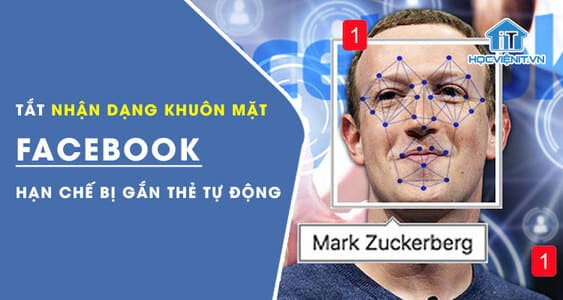Facebook recently changed its company name to Meta, but that’s not the only big change. Facebook is no longer using facial recognition to tag photos and is deleting the facial data of more than a billion people. Here’s why.
| Join the channel Telegram of the AnonyViet 👉 Link 👈 |
“People who have opted in will no longer be automatically recognized in photos and videos, and we will remove more than a billion individual facial recognition patterns for each person,” said Jerome Pesenti, Vice President of Intelligence. artificial, said in a post on blog Meta.
The social networking giant has offered a facial recognition tool since 2019. Someone posts a photo with you in it, and Facebook notices that you’re in the photo and suggests that person tag you in it.
On the surface, it seems like a simple and convenient feature, but it also means a single company with a detailed facial recognition database on most of the world’s population. Sure, Meta says it’s a voluntary feature, but that doesn’t change the fact that it’s a private entity with a lot of data.
Why Facebook wants to forget your face
In the blog post, Pesenti said, “There is a lot of concern about the ability of facial recognition technology in society, and regulators are still in the process of providing a clear set of rules for how to use facial recognition technology. use it. Amid this ongoing uncertainty, we believe it is appropriate to limit the use of facial recognition to a few use cases. “
That sounds like Meta is worried about government regulation regarding facial recognition, and the company is taking a proactive approach by deleting data and not collecting new facial information.
Facebook settled a lawsuit in Illinois in February 2021 alleging Facebook’s tagging technology violated Illinois’ biometric privacy law. Thereby, the company agreed to pay $650 million for allegedly using facial tagging data without notifying users. This is only in one state and it is easy for other states and countries to pass similar legislation in the future.
“We are pleased to have reached an agreement to be able to resolve this issue, in the best interest of our community and shareholders,” Facebook said in a statement.
Meta also reminds us of the positives of facial recognition in the article. “For example, the ability to tell visually impaired users that the person in the photo on their feed is their high school friend or former colleague, is a valuable feature that makes our platform more accessible. . But it also relies on an underlying technology that tries to evaluate the faces in the image to match them with those stored in a database of people who have opted in. The changes we’re announcing today involve the whole company getting rid of this broad form of identification and moving towards narrower forms of personal authentication,” said Pesenti.
The change will also make the social network no longer able to use automatic alt text, a technology used to generate image descriptions for people who are blind or visually impaired. Clearly, the company felt this was worth the trade-off.
While that sounds like a practical use of the technology, the company believes that external pressure and privacy issues with a company with a lot of facial data are not worth it. to exchange.
What about Face ID on iPhone? Meta acknowledges the difference between on-device facial recognition and facial databases. “Face recognition can be especially valuable when the technology works privately on a person’s device. This on-device facial recognition method, which does not require communication of facial data with an external server, is most commonly implemented today in systems used to unlock smartphones. on the blog.
Finally, Meta seems to be ahead of regulations and is preparing lawsuits. Paying a $650 million settlement to a state is a very frustrating thing, but if future states and countries sue the company over the same issue, it could be disastrous for the company. with Facebook. While we’d like to believe that Meta had a change of heart and decided to put user privacy first, that doesn’t seem likely.









